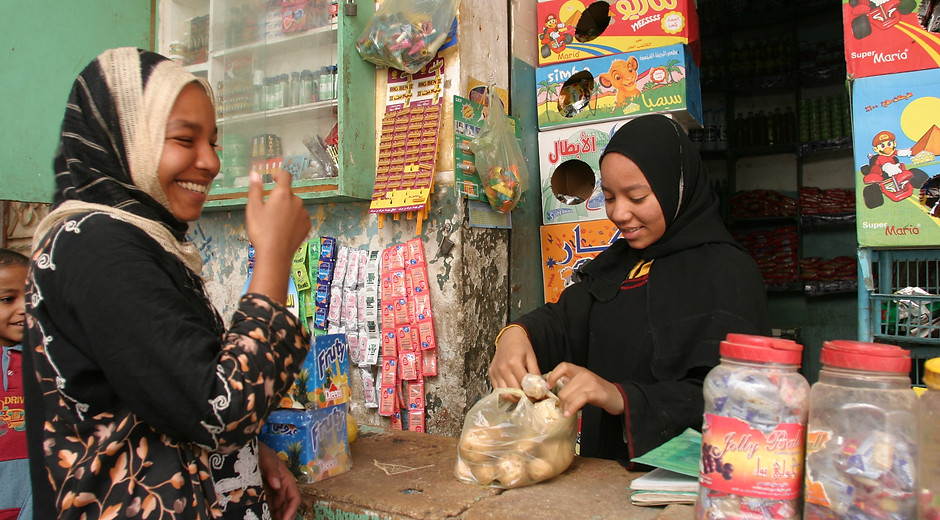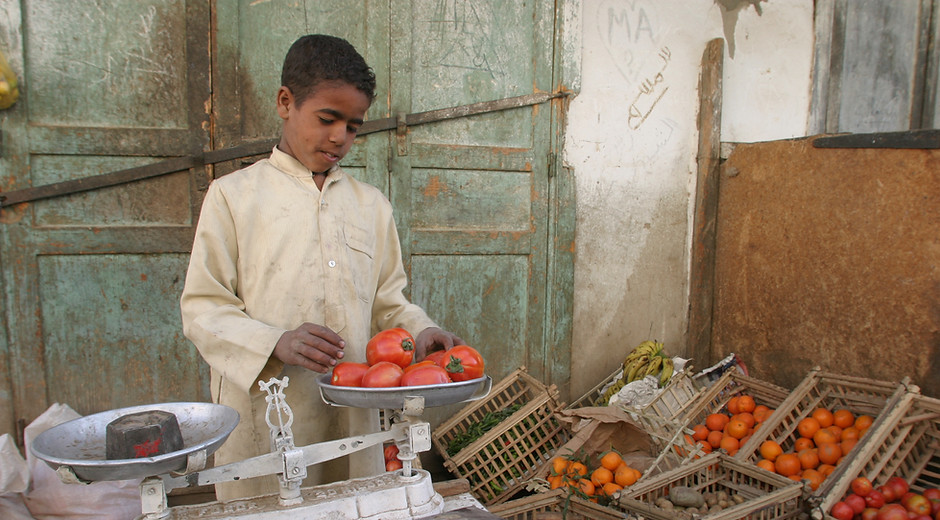
Promoting and Protecting the Interests of Children who Work
The PPIC-Work approach has been developed and tested in Egypt over a ten year period. PPIC-Work shows how microfinance institutions can enhance the social impact of their programs by helping improve the lives of working children and how private businesses can help children who are involved in some of the worst forms of child labour move to safer work and better futures, improving the lives of working children
Over 90 percent of PPIC-Work client businesses have been found to be actively involved in improving children’s working conditions and learning opportunities compared with just over 20 percent of non PPIC-Work clients.
Working children report:
safer, cleaner and healthier work environments;
shorter working hours;
fairer treatment, and;
no physical or verbal abuse.
Most of the working children involved with PPIC-Work are:
continuing their schooling, and;
improving their academic performance at school.
Many working children have also:
developed good business skills, and;
are interested in starting their own businesses once they are adults.
PPIC-Work partner agencies have been able to develop an award winning model that helps working children move out of very hazardous types of work and find safer work with training opportunities for future careers.
The PPIC-Work experience was recognized internationally as a prime example of responsible business conduct.

History of the PPIC-Work Project
During the late 1990s, the Egyptian Association for Community Initiatives and Development (EACID) was operating its microfinance program in Upper Egypt and found that half of its microfinance clients were employing children. In some sectors such as technical trades (auto mechanics, metal working, carpentry) as much as 30 per cent of the workforce was below 15 years of age. While the original response was to try to prevent children from working EACID found through discussions with the children that their worked to helped support themselves and their families. Without their contributions to family income, they and their families would be even more vulnerable. EACID, along with its international partners PTE and MEDA, developed the PPIC-Work project to find out how a microfinance institution could help improve the working conditions and learning opportunities of working children.
Working closely with business owners and working children the PPIC-Work team was able to develop a series of intervention tools that promote and protect the interests of working children.
PPIC-Work was funded by the Canadian International Development Agency and implemented through an agreement with PTE and MEDA. Interventions that were first developed with EACID in Aswan have been adapted for use in other parts of Egypt and adopted by new PPIC-Work partner MFIs.
